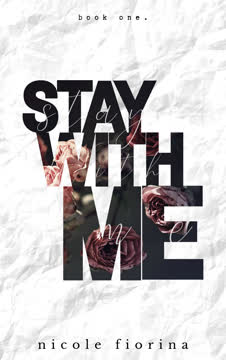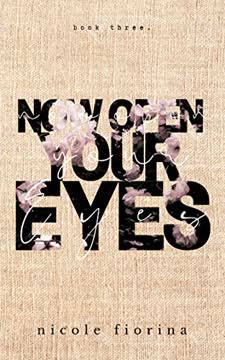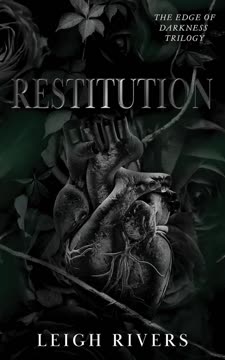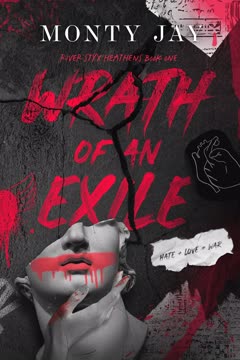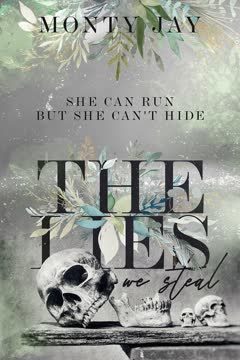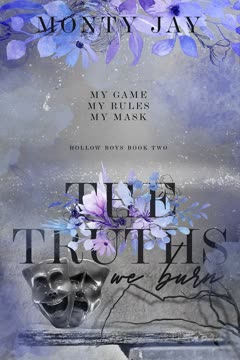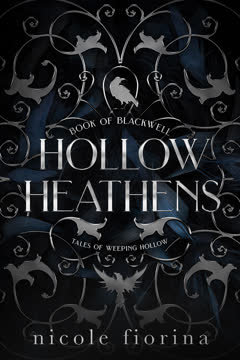Plot Summary
Broken Girl, New Prison
Mia Jett, a troubled American teen, is sent to Dolor, a reformatory college in the UK, after a string of reckless acts and emotional detachment. Her family, unable to handle her, ships her off, hoping the institution will "fix" her. Mia, numb and emotionally detached due to a traumatic past she can't fully remember, arrives at Dolor expecting nothing but more isolation. The school is a fortress for the broken, the addicted, and the unwanted, and Mia's only plan is to keep her head down and survive.
Dolor's Unforgiving Walls
Upon arrival, Mia is stripped of her belongings, subjected to invasive searches, and introduced to the strict, almost prison-like rules of Dolor. She meets Dean Lynch, who makes it clear that any misstep will land her in solitary or worse. Her first encounters with other students—Jake, Alicia, and the enigmatic Ollie—are prickly, but they hint at the possibility of connection. Mia's dorm is bare, her future uncertain, and her heart still locked away.
Meeting Ollie: Sparks Ignite
Mia's first real spark of feeling comes when she meets Ollie Masters, a British student with striking green eyes and a poetic soul. Their chemistry is immediate and electric, but both are damaged in different ways. Ollie is drawn to Mia's darkness, while Mia is both intrigued and terrified by Ollie's emotional intensity. Their interactions are charged, and Mia's carefully constructed walls begin to tremble.
The Circle of Misfits
Mia is reluctantly pulled into a group of misfit students: Jake (the persistent friend), Alicia (the tough survivor), Bria (the jealous flirt), Isaac (the addict), and Ollie. The group's midnight gatherings, games, and confessions reveal their traumas and desires. Mia's sharp tongue and emotional detachment both repel and attract the others. Rivalries, especially with Bria, and the group's complicated sexual politics set the stage for future betrayals.
Rules, Games, and Temptations
The students' games—strip or dare, truth or drink—become a way to test boundaries and seek connection. Mia and Ollie's relationship deepens through these games, as they challenge each other's rules about intimacy, sex, and vulnerability. Mia insists that kissing is more intimate than sex, while Ollie wants more than just physical connection. Their push-pull dynamic intensifies, and the group's fragile alliances are tested.
Kisses, Chemistry, and Control
Mia and Ollie's chemistry becomes undeniable, culminating in a passionate, rule-breaking kiss and eventually sex. For Mia, this is both terrifying and liberating—she's never allowed herself to feel this much. Ollie, who suffers from emotional intensity, is all-in, but Mia's trauma and fear of attachment make her pull away. Their relationship is a lifeline for both, but also a source of new pain and risk.
Unraveling: Past and Pain
As Mia grows closer to Ollie, memories of her childhood abuse begin to surface. She experiences panic attacks, rage, and breakdowns, culminating in a violent episode after comforting a younger student, Zeke. The trauma she's buried for years claws its way to the surface, and Mia is forced to confront the truth in therapy: she was sexually abused by her uncle, killed him in self-defense, and lost her mother to suicide. The revelation is both shattering and freeing.
The Power of Touch
Ollie becomes Mia's anchor, using touch, music, and patience to help her process her trauma. Their physical relationship is both a source of healing and a battleground for Mia's fears. Through Ollie's love and the support of her friends, Mia begins to believe she can be more than her past. But the threat of relapse—of losing her feelings and returning to numbness—haunts her.
Love, Lust, and Denial
Mia and Ollie's relationship is threatened by jealousy (from Bria and Maddie), Dolor's anti-relationship culture, and their own insecurities. When Mia learns that Ollie slept with Maddie while on medication, and Maddie returns to Dolor, old wounds are reopened. Meanwhile, Mia's past sexual encounters, including with Oscar (a security guard), come back to haunt her. The couple's love is tested by secrets, misunderstandings, and the ever-present risk of exposure.
Trauma, Truth, and Therapy
In a pivotal group therapy session, Mia finally tells her full story—her abuse, her mother's suicide, her emotional detachment, and her struggle to feel. The confession is raw and cathartic, but it also exposes her to judgment and pity. Ollie, devastated by her pain, promises to love all of her, even the broken parts. The group is forced to confront their own traumas and the ways they hurt each other.
Bria's Betrayal and Oscar's Threat
Bria, jealous and wounded, betrays Mia and Ollie by spreading rumors and aligning with Isaac and Oscar. Oscar, revealed to be Ollie's estranged brother, becomes increasingly predatory toward Mia, using her past and her vulnerability to manipulate and assault her. The threat of sexual violence becomes real and immediate, and Mia is forced to relive her worst nightmares.
Midnight Party, Midnight Danger
At a New Year's Eve party, the group is drugged by Isaac and Oscar. Bria is raped, Mia is nearly assaulted, and Ollie is incapacitated. The aftermath is chaos: Bria is hospitalized, Isaac and Oscar disappear, and Ollie is arrested for crimes he didn't commit. Mia, traumatized and guilt-ridden, must find the strength to fight for justice and for Ollie's freedom.
Shattered Trust, Shattered Self
With Ollie in solitary, Oscar on the run, and her friends scattered, Mia is left alone to pick up the pieces. She is attacked again by Oscar, but manages to record his confession. The experience leaves her physically and emotionally battered, but also determined to clear Ollie's name. The cost of survival is high, and Mia's sense of self is shattered.
The Aftermath: Guilt and Healing
Oscar is finally caught, Isaac is arrested, and Mia's evidence exonerates Ollie. But the damage is done: Bria is traumatized, the group is fractured, and Ollie is changed by his time in solitary and the medication he's forced to take. Mia, with the help of a compassionate police officer and Dr. Conway, begins to see her own strength and the possibility of helping others. Healing is slow, and the scars are deep.
Oscar's Confession, Ollie's Sacrifice
Ollie is released from solitary only after agreeing to take medication that numbs his emotions. He warns Mia that the drugs will change him, and begs her to find a way to bring him back. Their reunion is bittersweet: Ollie is physically present but emotionally absent, his love for Mia buried under chemical indifference. Mia is left to mourn the loss of the boy who saved her.
Solitary, Setbacks, and Medication
Ollie's return is marked by hollow eyes and cold detachment. The medication has stripped him of his emotional intensity, and he tells Mia to stay away. Mia is devastated, but refuses to give up. She clings to the hope that love can overcome even this, and searches for a way to remind Ollie of who he was—and who they were together.
The Return: Hollow Eyes
Mia's attempts to reach Ollie are met with indifference and rejection. The boy who once fought for her now tells her to let him go. Mia is left alone, haunted by memories and the promise that they would always find each other. The story ends with Mia's heart still beating, still hoping, even as Ollie walks away—his light extinguished, but not forgotten.
Desperate Reminders, Desperate Love
The epilogue reveals Ollie's perspective: from the moment he first saw Mia, he knew she was his home, his salvation. Their love was instant, overwhelming, and destined. Despite everything—trauma, betrayal, violence, and loss—their connection endures. The story closes with the hope that, even in darkness, love can find a way back.
Characters
Mia Jett
Mia is a young woman whose life has been shaped by childhood sexual abuse, the loss of her mother to suicide, and years of emotional numbness. She is fiercely intelligent, sarcastic, and self-destructive, using sex and rebellion as armor against pain. At Dolor, she is forced to confront her trauma, her capacity for love, and her fear of vulnerability. Her journey is one of gradual awakening: from numbness to feeling, from isolation to connection, from victim to survivor. Her relationship with Ollie is both a catalyst for healing and a source of new wounds. Mia's development is marked by her struggle to accept love, trust others, and reclaim her agency.
Ollie Masters
Ollie is a British student at Dolor, known for his striking green eyes, tattoos, and poetic soul. He suffers from "emotional intensity," feeling everything too deeply, which has made him both magnetic and vulnerable. His past is marked by neglect, abuse, and betrayal—especially by his brother, Oscar. Ollie is drawn to Mia's darkness, seeing in her a kindred spirit and a chance for redemption. His love for Mia is unconditional, but his own traumas and the institution's rules threaten to destroy him. Forced to take medication that numbs his feelings, Ollie becomes a tragic figure: present but absent, loving but unable to express it. His journey is one of sacrifice, hope, and the desperate need to be seen.
Jake
Jake is an openly gay student who becomes Mia's first real friend at Dolor. He is persistent, funny, and unafraid to call Mia out on her bullshit. Jake's own struggles with family rejection and identity make him empathetic to Mia's pain. He is the glue that holds the group together, often mediating conflicts and providing much-needed levity. Jake's loyalty is unwavering, and his friendship is a lifeline for Mia.
Alicia
Alicia is a foster care survivor who has found a chosen family at Dolor. She is strong, outspoken, and protective of her friends. Alicia's experiences with abandonment and trauma make her both compassionate and guarded. She is often the voice of reason in the group, challenging Mia and others to confront their issues. Alicia's development is tied to her desire for stability and her willingness to fight for those she loves.
Bria
Bria is a complex figure: seductive, competitive, and deeply insecure. She is threatened by Mia's arrival and her connection with Ollie, leading to rivalry and betrayal. Bria's own trauma and need for validation drive her actions, culminating in her victimization at the hands of Isaac and Oscar. Her journey is one of pain, denial, and the slow process of healing.
Isaac
Isaac is a student struggling with addiction and a history of manipulation. He is both a friend and a threat, ultimately betraying the group by drugging and assaulting Bria (and nearly Mia) at Oscar's behest. Isaac's actions are driven by desperation, self-loathing, and a willingness to hurt others to get what he wants. His betrayal is a turning point in the story, exposing the group's vulnerabilities and the dangers lurking within Dolor.
Oscar
Oscar is the primary antagonist: a security guard at Dolor, Ollie's estranged brother, and a sexual predator. He manipulates, threatens, and assaults Mia, using her past and her vulnerability to control her. Oscar's actions are driven by jealousy, cruelty, and a need for power. His betrayal of Ollie is both personal and devastating, and his eventual confession is the key to justice—but not before he leaves lasting scars.
Dean Lynch
Dean Lynch is the head of Dolor, responsible for maintaining order and discipline. He is strict, unsympathetic, and often more concerned with appearances than with the students' well-being. Lynch's decisions—solitary confinement, forced medication, and delayed justice—reflect the institution's failures and the broader system's inability to protect the vulnerable.
Dr. Conway
Dr. Conway is Mia's therapist and one of the few adults who genuinely cares about her. She is tough, insightful, and unafraid to challenge Mia's defenses. Dr. Conway's guidance is crucial to Mia's healing, helping her confront her trauma, accept her feelings, and imagine a future beyond survival. She represents hope, wisdom, and the possibility of change.
Zeke
Zeke is a younger student who rarely speaks, communicating through sign language and silent presence. He becomes a confidant for Mia, a mirror for her own pain, and a symbol of the silent suffering that pervades Dolor. Zeke's friendship is quiet but profound, reminding Mia of the importance of being seen and heard.
Plot Devices
Trauma as Narrative Engine
The story is structured around Mia's gradual confrontation with her childhood abuse, her mother's suicide, and the resulting emotional detachment. Flashbacks, therapy sessions, and panic attacks are used to reveal her past and its impact on her present. The narrative's tension comes from Mia's struggle to feel, to trust, and to love, with Ollie serving as both catalyst and mirror.
Duality of Intimacy and Isolation
The push-pull between intimacy and isolation is central: Mia and Ollie's relationship is a lifeline, but also a source of new pain. The institution's rules, the group's betrayals, and their own fears threaten to destroy what they've built. The story uses physical touch, music, and shared secrets as symbols of healing, while also highlighting the dangers of vulnerability.
Group Dynamics and Betrayal
The group's midnight gatherings, games, and confessions serve as both bonding rituals and battlegrounds. The shifting alliances, jealousies, and betrayals expose the fragility of trust and the ease with which pain can be weaponized. The group's dynamics mirror the larger themes of trauma, survival, and the search for belonging.
Cycles of Healing and Relapse
The narrative structure is cyclical: moments of connection and healing are followed by relapse, betrayal, and renewed trauma. Mia's journey is not a straight line, but a series of advances and retreats, breakthroughs and breakdowns. The story uses repetition—of games, therapy, and rituals—to underscore the difficulty of lasting change.
Medication and Emotional Numbing
Ollie's forced medication, which strips him of his emotional intensity and love for Mia, serves as a powerful metaphor for the dangers of numbing pain rather than confronting it. The story explores the cost of survival, the risk of losing oneself, and the desperate need for reminders of who we are.
Symbolism: Music, Touch, and Memory
Music, physical touch, and shared memories are recurring symbols of hope and connection. Mia's ability to play piano, Ollie's poetry, and their rituals of touch become ways to access feeling and reclaim agency. The story uses these sensory experiences to bridge the gap between numbness and life.
Analysis
Stay with Me is a raw, unflinching exploration of trauma, survival, and the redemptive power of love. Nicole Fiorina crafts a narrative that refuses easy answers, instead embracing the messy, nonlinear reality of healing. Through Mia and Ollie, the novel interrogates the ways in which pain shapes identity, the risks and rewards of vulnerability, and the necessity of being seen and heard. The story is both a romance and a survival tale, using the microcosm of Dolor to examine broader issues of abuse, institutional failure, and the search for belonging. Its lessons are hard-won: that healing is possible but never simple; that love can be both a balm and a battlefield; and that, even in the darkest places, hope endures. The book's ultimate message is one of resilience: that brokenness is not the end, and that, with courage and connection, we can find our way back to ourselves—and to each other.
Last updated:
FAQ
```markdown
Synopsis & Basic Details
What is Stay with Me about?
- A Journey from Numbness to Feeling: Stay with Me by Nicole Fiorina follows Mia Jett, a young woman sent to a reformatory college in the UK, Dolor, due to her extreme emotional detachment and self-destructive behavior stemming from a deeply buried childhood trauma. The narrative charts her reluctant awakening as she encounters Ollie Masters, a fellow student whose intense emotional capacity challenges her carefully constructed walls of numbness.
- Love Amidst Chaos: The story delves into the complex, often volatile relationship between Mia and Ollie, exploring how their contrasting emotional states—Mia's alexithymia and Ollie's emotional intensity—both attract and repel them. Their connection becomes a catalyst for Mia to confront her past, while also exposing them to the harsh realities and betrayals within Dolor's strict, isolated environment.
- Survival, Trauma, and Redemption: Beyond the romance, the novel is a raw exploration of trauma, abuse, and the arduous path to healing. It portrays Mia's struggle to reclaim her identity and voice, and Ollie's unwavering commitment to her, even as he faces his own battles with a manipulative brother and the institution's punitive measures. The book ultimately questions the nature of love, resilience, and what it truly means to "stay" with someone through their darkest moments.
Why should I read Stay with Me?
- Deep Dive into Psychological Complexity: Readers seeking a story that goes beyond surface-level romance will appreciate Stay with Me's unflinching look at emotional detachment, trauma, and the psychological impact of abuse. The novel offers a nuanced portrayal of healing, showing that progress is often messy and non-linear, making it a compelling read for those interested in character-driven psychological dramas.
- Intense, Unforgettable Romance: The central relationship between Mia and Ollie is a powerful force, characterized by raw chemistry, profound vulnerability, and a desperate fight for connection. Their journey is filled with high emotional stakes, making it a captivating read for fans of intense contemporary romance who enjoy a love story that challenges conventional boundaries.
- Exploration of Resilience and Hope: Despite its dark themes, Stay with Me ultimately delivers a message of resilience and the enduring power of human connection. It highlights how empathy, understanding, and unwavering support can help individuals confront their deepest fears and find a path toward self-acceptance and a meaningful future, offering a hopeful perspective on overcoming adversity.
What is the background of Stay with Me?
- A Fictional Reformatory College Setting: The story is set in Dolor University, a fictional reformatory college in the United Kingdom, specifically designed for "troubled souls and delinquents who suffered from mental illnesses, addictions, and a poor parental guidance." This unique, isolated, and almost prison-like environment serves as a pressure cooker, intensifying character interactions and thematic explorations of control, freedom, and rehabilitation.
- Focus on Mental Health and Trauma: The novel is deeply rooted in themes of mental health, particularly Alexithymia and Emotional Detachment Disorder (Mia) and Emotional Intensity (Ollie). The author, Nicole Fiorina, explicitly states in her "About the Author" section that her writing style is "unapologetic and emotional, striving to push buttons, hearts, and limits," suggesting a personal commitment to exploring these challenging psychological landscapes.
- Cultural and Social Commentary: While fictional, Dolor's strict rules, invasive procedures, and "anti-relationship" culture reflect broader societal attitudes towards mental illness and rehabilitation. The story subtly critiques institutional approaches that prioritize control and conformity over genuine healing, and touches upon the pervasive nature of sexual violence, as highlighted by the RAINN hotline information included at the end of the book.
What are the most memorable quotes in Stay with Me?
- "Stay with me," you had said over and over. Who would have thought you would be the one to take a step into oblivion? I'm screaming now, can you hear me? Why didn't you stay with me?: This poignant line from Mia's prologue, repeated in the ending, encapsulates the central theme of the novel: the desperate plea for connection and the devastating pain of abandonment. It foreshadows Ollie's eventual emotional withdrawal and Mia's struggle to hold onto their bond, making it an iconic Stay with Me quote.
- "Emotions can change. They can go from one extreme to the next depending on various conditions, but love… love never waivers. It endures all other emotions. If it couldn't withstand, then it was never really love in the first place. Love is invariable, Kipp. Constant. Not an emotion.": Ollie's profound definition of love in Dr. Kippler's class is a pivotal moment, revealing his deep emotional intelligence and setting the stage for his unwavering commitment to Mia. This quote is central to understanding Ollie Masters' motivations and his unique perspective on human connection.
- "I'm yours, Mia, and you're mine, and that's all I'll ever know and see.": Spoken by Ollie after Mia confesses her past with his brother, this declaration transcends mere romance. It signifies his unconditional acceptance and fierce loyalty, demonstrating that his love for Mia is so absolute it overrides even the most painful betrayals. This quote highlights the depth of their bond and themes in Stay with Me like forgiveness and unwavering devotion.
What writing style, narrative choices, and literary techniques does Nicole Fiorina use?
- First-Person Dual Perspective (Mia & Ollie's Prologues/Epilogue): The novel primarily uses Mia's first-person perspective, immersing the reader directly into her emotionally detached and later, intensely feeling, mind. However, the prologue and epilogue are from Ollie's perspective, offering crucial insights into his initial attraction and unwavering love for Mia, framing her journey through his eyes and enriching the Stay with Me character analysis.
- Raw, Unapologetic, and Sensory Language: Fiorina employs a direct, often visceral writing style that doesn't shy away from graphic descriptions of violence, sex, and emotional turmoil. Her language is rich in sensory details, particularly touch, smell, and sound, which are vital for conveying Mia's awakening emotions and Ollie's intense experiences. This technique allows readers to feel Mia's journey from numbness to overwhelming sensation.
- Symbolism and Foreshadowing: The author skillfully uses recurring symbols like music (especially the piano), physical touch, the changing weather, and the maze-like library to represent Mia's internal state and the evolving relationship. Subtle foreshadowing, such as Ollie's early warnings about the dangers of Dolor's relationships and the effects of medication, builds narrative tension and prepares the reader for later plot twists, enhancing the Stay with Me symbolism explained.
Hidden Details & Subtle Connections
What are some minor details that add significant meaning?
- Ollie's Tattoos as a Narrative of His Past: Beyond being visually striking, Ollie's tattoos are a subtle narrative of his personal history and emotional landscape. The "tree roots spiraled together into a silhouette of two people" on his torso symbolize his deep need for connection and belonging, while the "scissors" covering a "crest to represent brotherhood" explicitly detail his painful break from Oscar. This Stay with Me symbolism reveals his inner world before he even speaks of it.
- The Library as a Sanctuary and Maze: The library, initially a place of escape for Ollie, becomes a shared sanctuary for him and Mia. Its maze-like structure, with "corridors and passageways split in all directions," subtly mirrors Mia's internal confusion and her journey of self-discovery. The "hidden small round nook" they find symbolizes the intimate, safe space they create together, a refuge from Dolor's harsh realities, offering a deeper Stay with Me analysis.
- Zeke's Silence and Sign Language: Zeke, the "screaming kid" who never speaks, is more than just a minor character; his silence is a powerful motif. His ability to communicate through sign language, known only to Ollie and later revealed to Mia, highlights the hidden depths of communication and understanding that exist beyond spoken words. This detail underscores Ollie's empathy and Mia's growing capacity for non-verbal connection, enriching Stay with Me themes.
What are some subtle foreshadowing and callbacks?
- Ollie's Early Warnings about Dolor's Relationships: Early in the story, when Mia asks about relationships at Dolor, Jake says, "Oh, there's no rules against it… but trust me when I say, you don't want to be in one." Ollie later elaborates on the tragic story of Thomas and Livy, whose relationship led to rape, murder, and suicide. This foreshadows the extreme dangers Mia and Ollie face, subtly hinting at the institution's destructive influence on love and connection, a key element in Stay with Me explained.
- Mia's "Cute but Psycho" Shirt: Mia wears a shirt that reads "cute but psycho" on her first day and again on the day she confronts Ollie in the library. This seemingly throwaway detail subtly foreshadows her internal struggle and the violent past she's suppressed. The shirt acts as a self-fulfilling prophecy, reflecting her self-perception and the external judgment she faces, while also highlighting the contrast with the "forever changed" Mia who wears it later, providing a deeper Mia Jett character analysis.
- The Recurring "Stay with Me" Phrase: The phrase "Stay with me" is a powerful callback, first appearing in Mia's prologue as a desperate plea to a departing Ollie, and later becoming Ollie's repeated request to Mia during her emotional breakthroughs. This phrase evolves from a lament of loss to a desperate anchor, symbolizing their mutual need for unwavering presence and commitment, central to the Stay with Me ending explained and its emotional impact.
What are some unexpected character connections?
- Ollie and Zeke's Shared Language: The revelation that Ollie and Zeke communicate through sign language is an unexpected connection that deepens both characters. It highlights Ollie's compassionate nature and his ability to connect with those who are marginalized, while also giving Zeke a hidden depth beyond his "screaming kid" persona. This bond subtly influences Mia, as she later seeks solace and confession from Zeke, recognizing his unique capacity for silent understanding.
- Maddie's Connection to Ollie's Past Medication: Maddie's return and her claim on Ollie as her "fella" is initially presented as a simple jealousy plot. However, the deeper connection is revealed when Ollie confesses he "played her" while on his medication, which "neutralized" him and stripped him of his "conscience." This links Maddie directly to the destructive side effects of Ollie's forced emotional numbing, making her a living reminder of the person he fears becoming again, adding layers to Ollie Masters' motivations.
- Ethan Scott's Personal Trauma: Officer Ethan Scott, initially a minor authority figure, forms an unexpected connection with Mia through his own personal trauma: his sister's rape and subsequent suicide. This shared experience allows Mia to open up fully for the first time without crying, and Ethan's empathy provides a rare moment of genuine understanding and validation, highlighting the themes in Stay with Me around shared suffering and healing.
Who are the most significant supporting characters?
- Zeke: The Silent Confidant and Mirror: Zeke, the young student who communicates through shrieks and later sign language, is profoundly significant. He acts as Mia's silent confidant, a non-judgmental presence to whom she can confess her deepest fears and secrets. His own vulnerability and trauma mirror Mia's, allowing her to develop empathy and a protective instinct, which is crucial for her emotional awakening. His connection with Ollie through sign language further emphasizes the depth of unspoken understanding.
- Dr. Conway: The Unconventional Healer: Dr. Conway, Mia's therapist, plays a pivotal role not just as a professional, but as a surrogate maternal figure. Her unconventional methods, directness, and unwavering belief in Mia's capacity to heal push Mia to confront her past. Dr. Conway's personal anecdotes and refusal to let Mia "space out" are instrumental in breaking down Mia's emotional barriers, making her a key figure in Mia's Stay with Me healing journey.
- Oscar: The Embodiment of Past and Present Trauma: Oscar, Ollie's estranged brother and a security guard, is the primary antagonist and a deeply significant supporting character. He embodies Mia's past trauma, becoming a present-day abuser who uses her vulnerability against her. His actions drive much of the plot's conflict and force Mia to confront her powerlessness and find her voice. Oscar's role is crucial in highlighting the cyclical nature of abuse and the profound impact of family betrayal on Ollie.
Psychological, Emotional, & Relational Analysis
What are some unspoken motivations of the characters?
- Mia's Subconscious Desire for Punishment: Despite her outward emotional detachment and claims of not caring, Mia's self-destructive behaviors (driving through a garage, lighting a car on fire, seeking out casual sex) can be interpreted as a subconscious desire for punishment. This stems from her unresolved guilt over killing her uncle and her mother's suicide, believing she "deserved" the pain. This unspoken motivation drives her initial resistance to healing and her belief that she is a "monster," a key aspect of Mia Jett's motivations.
- Ollie's Need to Be a Savior: Ollie, suffering from "emotional intensity" and a past where he felt responsible for his mother and brother, carries an unspoken motivation to save Mia. His unwavering pursuit, his patience, and his desperate pleas for her to "stay" are not just about love, but also about fulfilling his deep-seated need to protect and heal, a role he couldn't fully achieve in his own family. This is a crucial element of Ollie Masters' motivations.
- Bria's Deep-Seated Insecurity and Need for Validation: Bria's aggressive flirtation with Ollie and Isaac, her jealousy towards Mia, and her willingness to participate in risky games stem from a profound insecurity. Her unspoken motivation is a desperate need for male attention and validation, likely a coping mechanism for her own unaddressed traumas. Her actions, though harmful, are rooted in a desire to feel seen and desired, offering a deeper Bria character analysis.
What psychological complexities do the characters exhibit?
- Mia's Alexithymia and Dissociation as a Defense Mechanism: Mia's primary psychological complexity is her alexithymia and emotional detachment, which is a direct result of severe childhood trauma. This isn't just a lack of feeling, but a sophisticated defense mechanism where her brain "flipped a switch" to protect itself. Her journey involves not just feeling again, but learning to process and integrate these overwhelming emotions without dissociating, a central theme in Stay with Me psychological analysis.
- Ollie's Emotional Intensity and Empathic Burden: Ollie exhibits emotional intensity, meaning he feels everything too deeply. This makes him incredibly empathetic and attuned to others' pain, but also leaves him vulnerable to being overwhelmed. His complexity lies in his struggle to manage this intensity, especially when confronted with Mia's trauma and his brother's betrayal, leading to outbursts of anger and despair. His forced medication further complicates this, as it strips him of his core emotional self.
- The Group's Collective Trauma Responses: The entire group at Dolor displays various psychological complexities stemming from their own traumas and addictions. Jake's need for acceptance, Alicia's guardedness, Isaac's substance abuse, and Bria's manipulative behaviors are all coping mechanisms. Their interactions highlight how individual traumas intersect and create a complex web of defense mechanisms, betrayals, and fragile attempts at connection within the institution.
What are the major emotional turning points?
- Mia's First Genuine Laugh with Ollie: A significant emotional turning point occurs when Ollie tells Mia a "knock-knock" joke, and she genuinely laughs for the first time in years. This moment is pivotal because it breaks through her emotional numbness, surprising both her and Ollie. It's a small, unexpected crack in her defenses, signaling the beginning of her capacity to feel joy and connection, a key moment in Mia Jett's emotional journey.
- Mia's Breakdown in the Bathroom after Comforting Zeke: After comforting Zeke during a thunderstorm, Mia is overwhelmed by a resurfacing memory of her mother, leading to a violent breakdown in the community bathroom. This is a major emotional turning point as it marks the first time her buried trauma actively manifests as intense rage and panic, forcing her to confront the depth of her unresolved pain and signaling the start of her healing process.
- Ollie's Confession of Love and Mia's First Tears: When Ollie confesses, "I'm so in love with you, Mia," while visiting her in the psych ward, it's a profound emotional turning point. Mia's subsequent tears, tasting "salt" on their lips, signify her complete emotional breakthrough. This moment confirms her capacity for love and marks the true beginning of her healing, as she finally allows herself to feel and reciprocate, a powerful Stay with Me emotional analysis.
How do relationship dynamics evolve?
- Mia and Ollie: From Magnetic Opposition to Unconditional Love: Their dynamic evolves from initial magnetic attraction and intellectual sparring (Mia's science vs. Ollie's notions) to a deep, unconditional love. Mia's initial emotional detachment and Ollie's intensity create a push-pull, but through shared vulnerability, physical intimacy, and Ollie's unwavering patience, their bond transforms into a lifeline. The relationship is tested by external threats and internal demons, ultimately solidifying into a profound, resilient connection.
- Mia and Jake: From Annoyance to Unwavering Friendship: Mia's relationship with Jake begins with her finding him "annoying" and "tenacious," but it gradually evolves into a deep, loyal friendship. Jake's persistent kindness, humor, and non-judgmental acceptance break through Mia's defenses, making him her first true friend. He becomes a crucial emotional support, especially after her trauma revelations and Ollie's arrest, demonstrating the power of platonic love in Stay with Me.
- The Group (Alicia, Bria, Isaac): Shifting Alliances and Betrayal: The group dynamic is constantly shifting, moving from initial camaraderie to intense rivalry and ultimately, profound betrayal. Alicia remains a steadfast ally, but Bria's jealousy and Isaac's addiction lead to destructive actions. This evolution highlights the fragility of trust in a high-stakes environment and the devastating impact of personal demons on collective bonds, underscoring the Stay with Me themes of loyalty and betrayal.
Interpretation & Debate
Which parts of the story remain ambiguous or open-ended?
- The Long-Term Effects of Ollie's Medication: While the story explicitly shows Ollie's emotional numbing and detachment after taking his prescribed medication, the long-term effects remain ambiguous. Mia promises to "bring him back," but the narrative doesn't fully resolve whether he will ever regain his full emotional intensity or if their love will permanently alter his brain chemistry. This leaves readers to ponder the true cost of his sacrifice and the enduring power of their bond against biological changes, a key point for Stay with Me ending explained.
- The Future of Dolor University's Approach: The novel critiques Dolor's institutional failures, particularly its punitive measures and the lack of genuine support for students like Ollie. While Oscar and Isaac are removed, and Ethan Scott is brought in, the fundamental approach of the reformatory remains largely unchanged by the end. It's ambiguous whether the institution will truly evolve to prioritize healing over control, or if it will continue to be a place where vulnerable individuals are further damaged, prompting debate on themes in Stay with Me regarding systemic issues.
- **Mia's Complete Healing and Integration of Her Past
Review Summary
Stay with Me receives mixed reviews, with many praising its emotional depth and unique characters. Readers love Ollie's sweet nature and Mia's character development. The intense romance and poetic writing style captivate many, though some criticize the handling of mental health topics and insta-love trope. Trigger warnings are emphasized for sensitive content. While some find it melodramatic or unrealistic, others consider it a powerful, unforgettable story that leaves them eager for the sequel.
Stay with Me Series
Similar Books
Download PDF
Download EPUB
.epub digital book format is ideal for reading ebooks on phones, tablets, and e-readers.
